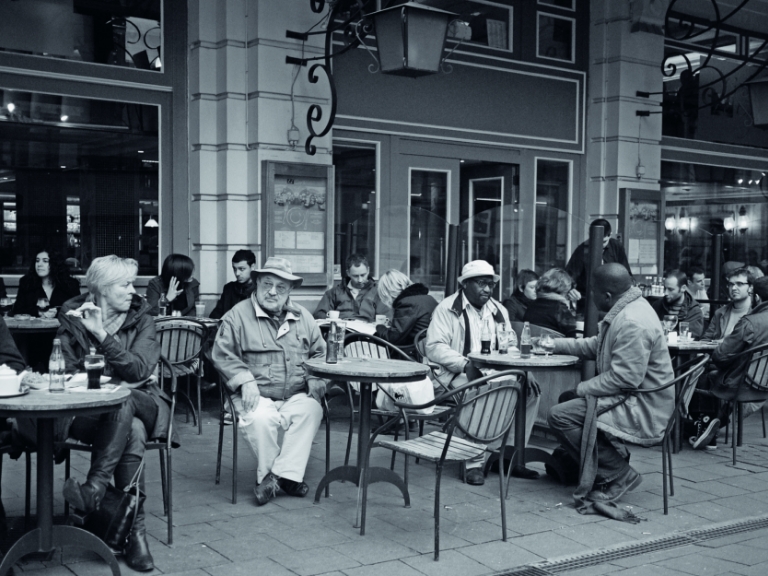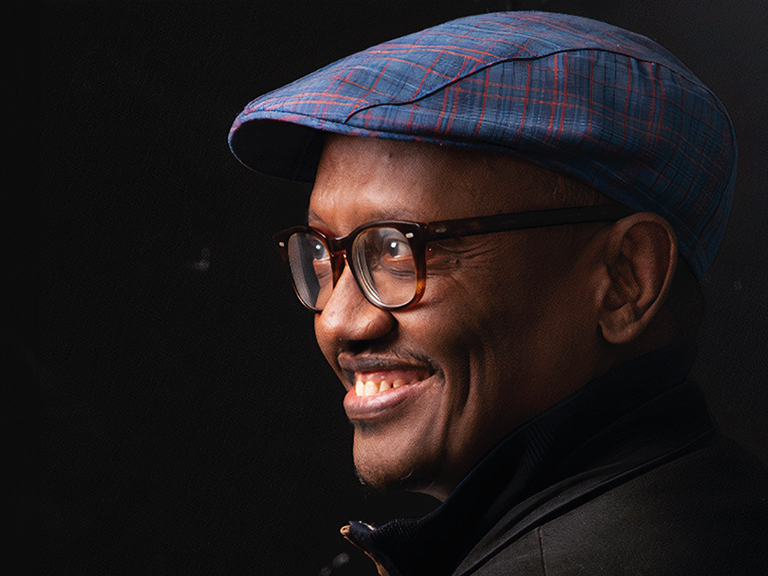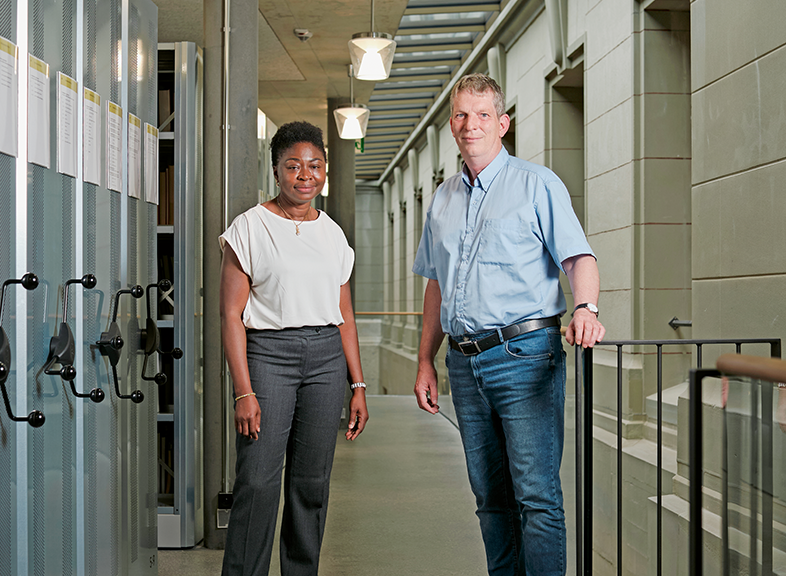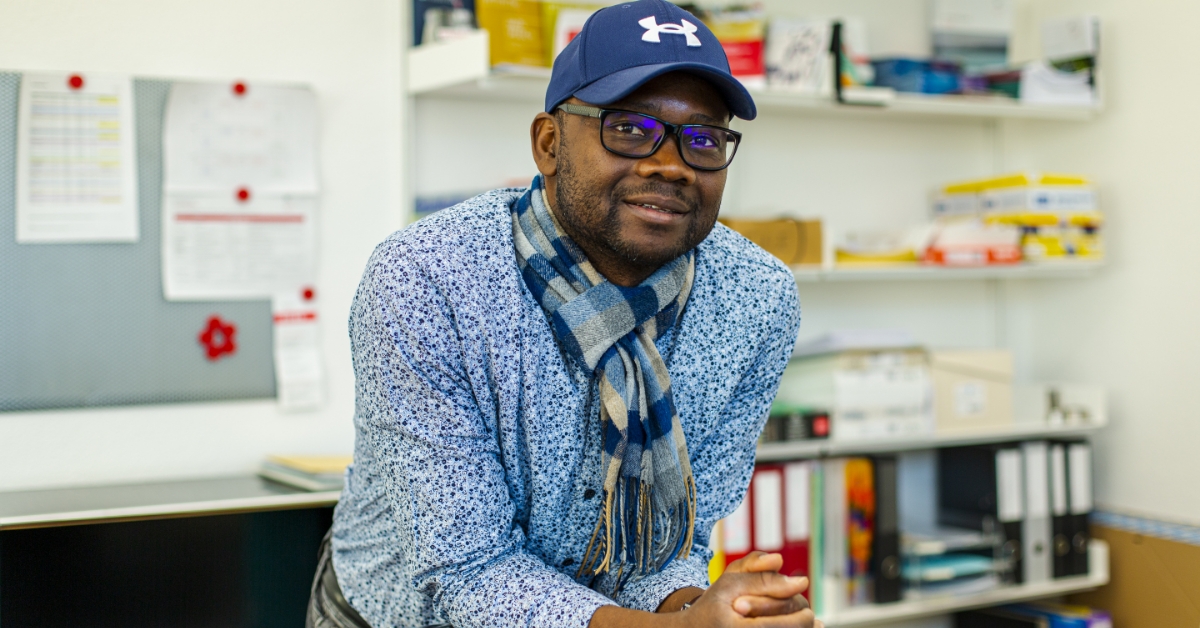Debate on Restitution
Swiss museums face up to their responsibilities
More and more countries are willing to return looted colonial art. The Swiss approach to the restitution of Benin Bronzes to Nigeria is unique: It was created bottom-up, driven by a sense of justice and the interest of curators in cultural exchange and knowledge transfer.
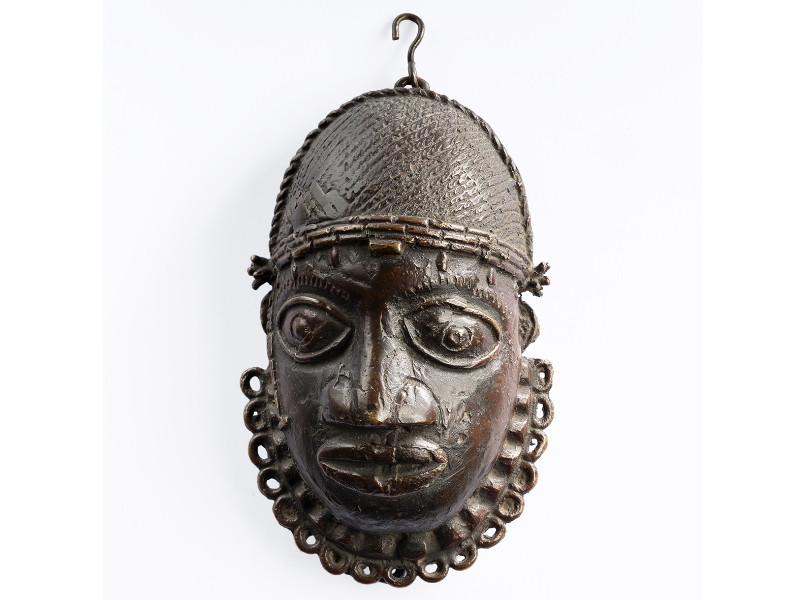
In 1897, British colonial troops attacked the capital of the Kingdom of Benin, in what is now Nigeria, looted the Royal Palace and stole between 5,000 and 10,000 works of art. These intricate works made of bronze, brass, ivory, and wood subsequently found their way through the art trade as so-called Benin Bronzes into private and public collections all over the world – including in Switzerland.
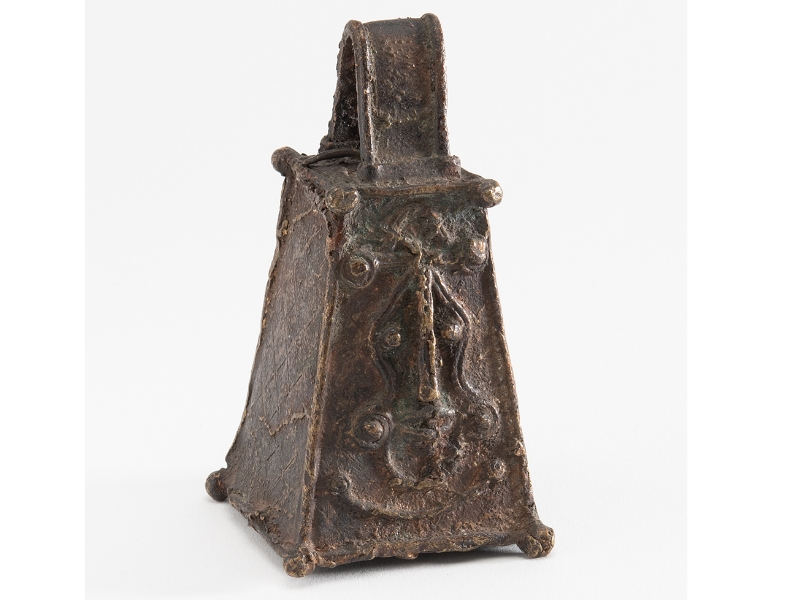
These Benin Bronzes have become a central symbol for dealing with art stolen from Africa. After all, a large part of Africa’s cultural heritage was stolen, expropriated, ransomed, or forcibly sold during the colonial era – and has since been exhibited in museums in the Global North. Only in recent years has there been a shift in thinking in Western countries, resulting in a growing willingness to give back this cultural heritage to African countries – especially the Benin Bronzes. “The ‘advantage’ of the Benin artifacts is that there is no doubt about the illegality of the British raid,” explains Lucky Igohosa Ugbudian, a visiting Nigerian researcher at the University of Bern.
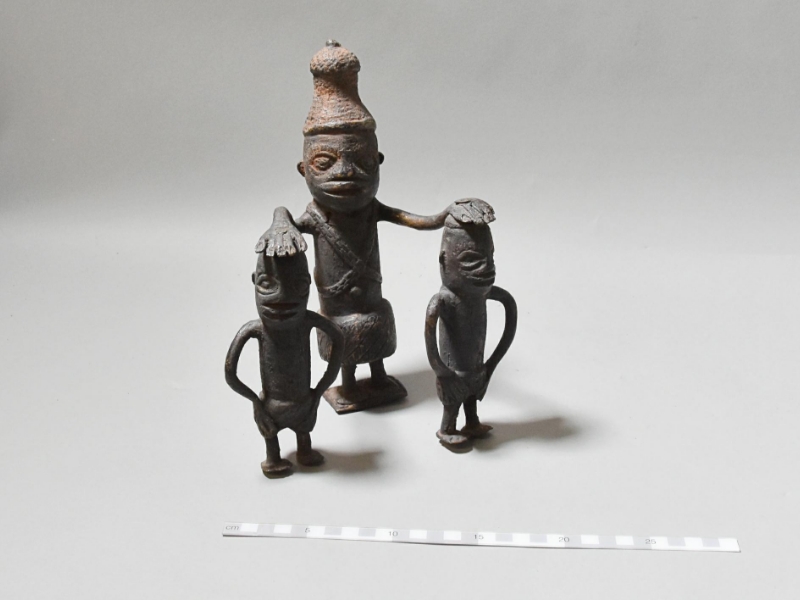
Nigeria demanded the return of these looted artifacts for the first time back in the 1930s – but to no avail. Only in recent years have the first Western countries, such as the USA and Germany, returned the property rights of the looted Benin artifacts to Nigeria, while others – such as France and the Netherlands – have signaled their willingness to do so. Swiss museums also agreed to do so in 2023 – even though no formal request from Nigeria has yet been received. However, the steps necessary for the return have been taken. As part of his one-year research fellowship at the University of Bern, historian Lucky Igohosa Ugbudian compared the restitution debate in Switzerland with other countries and says: “The Swiss example is unique in the world: After all, it’s the only one that came from the bottom-up.”
Subscribe to the uniAKTUELL newsletter

Discover stories about the research at the University of Bern and the people behind it.
Initiative taken
While in all other countries the initiative for the restitution of Benin artifacts originated from the state, in collaboration with museum management, in Switzerland museum staff have taken matters into their own hands, says Ugbudian. Specifically, these are the curators of the eight public Swiss museums that own Benin artifacts, including the Rietberg Museum in Zurich, the Ethnographic Museum of the University of Zurich, the Bern History Museum, and the Museum der Kulturen Basel (MKB).
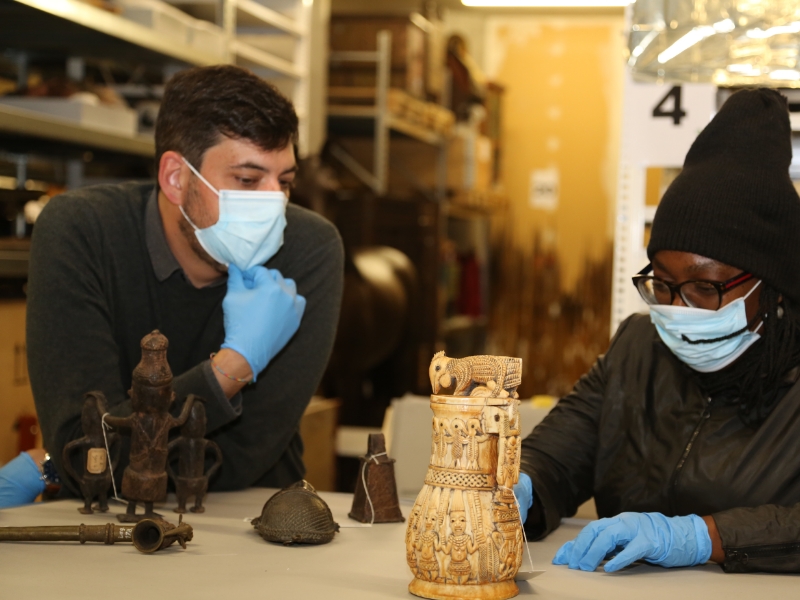
These curators had followed the restitution debates in other countries and wanted to face up to their responsibilities. On the initiative of the Museum Rietberg, they met to reflect on the origins of Benin Bronzes in their collections. They quickly went the whole hog: They obtained the approval of the museums’ directors and owners and asked the Federal Office of Culture for funding. This was promised and the “Benin Initiative Switzerland” launched in 2021: In this network, the museums investigated the origins of the Benin artifacts in their collections, in close collaboration with Nigerian experts and stakeholders. In February 2023, they announced that more than half of the 96 Benin artifacts in Swiss collections had been stolen or were likely to have been stolen – and that the museums were prepared to transfer their property rights to Nigeria.
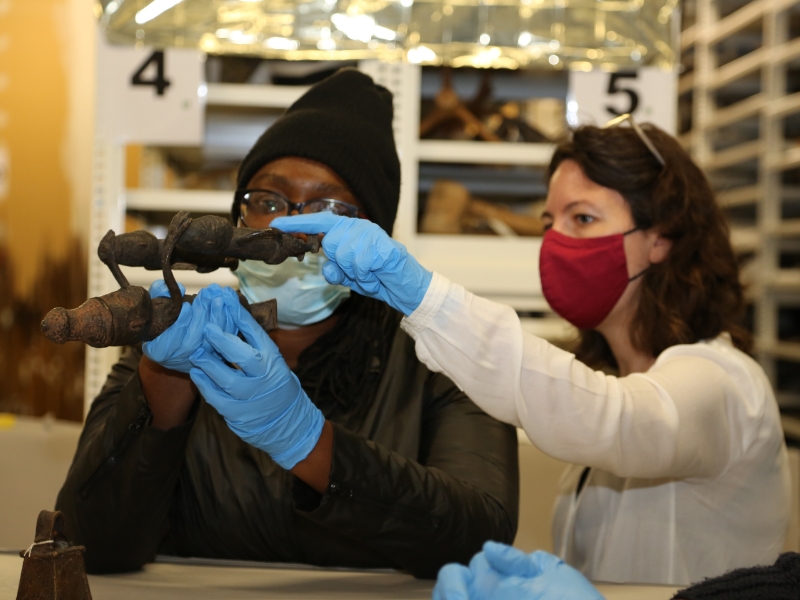
Commitment of curators
Lucky Igohosa Ugbudian is impressed by the Swiss curators: “Their initiative, their commitment and their passion make the Swiss example unique. They are driven by a strong sense of justice and a great interest in cultural exchange.” For them, it is absolutely clear that, “We can’t keep items that have been stolen from someone else!” Ugbudian is unable to give a conclusive answer to the question of why like-minded curators in other countries have not taken the initiative. This would require further research. He is particularly interested in making a more in-depth comparison between Switzerland and Germany and raises the question: “Would the German curators have had the courage and would there have been enough of them to demand research on origins?” One possible hypothesis is that hierarchical thinking is more pronounced in Germany and makes such initiatives more difficult for the workforce.
Fear of empty museums
The initiative of the Swiss curators was naturally influenced by the restitution debates in other European countries. In recent years, the attitude towards looted art has fundamentally changed in Europe. Ugbudian has traced how this happened. When Nigeria first claimed the Benin artifacts back in the 1930s, there was a clear no. Likewise, in the 1960s and 1970s, groups from various African countries demanded the return of looted colonial art. Reasons for the refusal: fear of empty museums and economic losses. As late as 2002, 18 museums – mainly from North America and Great Britain – issued a declaration classifying cultural property of colonial origin as a universal heritage of mankind, which therefore does not have to be returned. Again, protests had no impact.
Magazine uniFOKUS

Africa
This article first appeared in uniFOKUS, the University of Bern print magazine. Four times a year, uniFOKUS focuses on one specialist area from different points of view. Current focus topic: Africa
Subscribe to uniFOKUS magazineFalling statues and Macron’s declaration
This only changed with the Black Lives Matter movement, which began in the US in 2013. As a result, activists toppled the statues of colonial oppressors. “In doing so, they sent a clear message to the museums that they need to correct the way they deal with their illegally acquired cultural assets,” explains Ugbudian. But the pivotal moment came when French President Emmanuel Macron, on a trip to Burkina Faso in 2017, declared that France would return all stolen cultural assets to the countries of origin. “This message was the result of all the previous efforts of the African community and sent an unmistakable appeal to all Western governments,” says Ugbudian. In the meantime, France has agreed to cede ownership of the Benin artifacts to Nigeria, and Germany has already done so – for around 1,100 objects. Physically, most Benin Bronzes are still located in Europe. A museum will first have to be built in Nigeria to house them.
Intensive cooperation with Nigeria
Provenance research plays a central role in the restitution debates. The aim is to trace the origin of each individual art object and find out whether it was acquired illegally in a colonial context. This research is complex, but at the same time it is also an immense opportunity for intercultural exchange and knowledge transfer, according to Ugbudian. In this respect, too, the Swiss path is special: “The Swiss curators were extremely keen to deepen their understanding of the artifacts and collaborate with Nigerian partners.” They exchanged views with representatives from science, museums, arts and crafts, the government, and the palace. “The exchange was broader and more intensive than in other countries.”
“The return of the artifacts is central to achieving justice.”
Lucky Ugbudian Igohosa
In this collaboration, the “Benin Switzerland Initiative” sought, for example, to close gaps in provenances, gain a deeper understanding of the object’s biographies and strengthen the Nigerian perspective in exhibitions. In addition to visits and workshops in Switzerland and Nigeria, a jointly curated exhibition of Benin’s artifacts is also planned. Last but not least, these experiences should serve as a model for cooperation with other countries of origin of colonial art.
About the person:

Lucky Igohosa Ugbudian
is a historian and senior lecturer at Alex Ekwueme Federal University Ndufu-Alike in Nigeria. His research interests include cultural heritage, global history, and international studies. In 2023/2024, he conducted research on the Swiss path to the restitution of Benin artifacts at the Institute of History at the University of Bern as part of an Excellence Scholarship from the Swiss government.
The future of restitution
This is a subject that will occupy local museums for a long time to come. In addition to the Benin artifacts, countless colonial cultural treasures are also stored in European museums – according to one estimate, 90% of all African cultural treasures. The example of the Benin Bronzes shows what the loss of this cultural heritage means for the countries of origin. Because with the artifacts, Nigeria has also been robbed of its history, its spiritual gods, its cultural figures, and historical leaders. “Some artifacts served as a royal image, others documented the knowledge of the time, and some had a spiritual meaning,” says Lucky Igohosa Ugbudian. “Their return is a key step towards achieving justice.”
